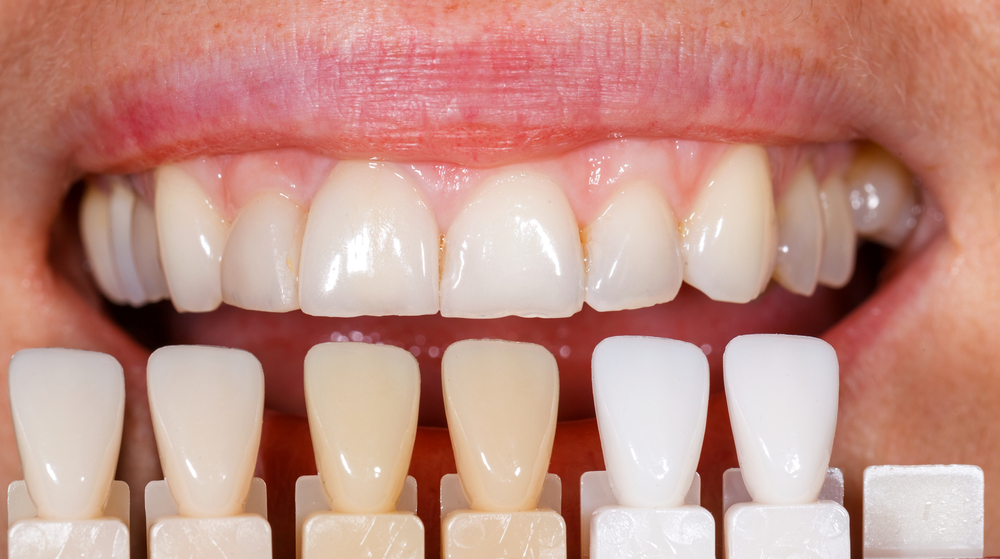Composite Veneers Or Porcelain

The realm of cosmetic dentistry has revolutionized the way we approach smile enhancements, offering a multitude of options to correct various dental imperfections. Among the most popular and effective solutions are composite veneers and porcelain veneers. Both are designed to improve the appearance of teeth by covering the front surface, but they differ significantly in terms of composition, application, durability, and cost. Understanding the distinctions between composite veneers and porcelain veneers is crucial for making an informed decision tailored to your specific dental needs and preferences.
Introduction to Veneers
Veneers are thin layers of material placed over the teeth to enhance their appearance. They are a conservative alternative to crowns, requiring less removal of tooth enamel. The primary purpose of veneers is to correct aesthetic issues such as discoloration, gaps, misalignment, or irregular shapes. Both composite and porcelain veneers serve this purpose, but their differences lie in the materials used and the techniques employed for their application.
Composite Veneers
Composite veneers are made from a resin material that is tooth-colored and can be shaped and molded to achieve the desired appearance. The application of composite veneers is typically less invasive compared to porcelain veneers, as it often requires minimal to no preparation of the tooth. This means less enamel is removed, making the procedure somewhat reversible. The resin used is the same material used for fillings, and it can be directly bonded to the tooth in a single visit.
Advantages of Composite Veneers
- Less Invasive: Minimal preparation is needed, preserving more of the natural tooth.
- Cost-Effective: Generally less expensive than porcelain veneers.
- Quick Procedure: Can often be completed in a single dental visit.
- Repairable: If damaged, composite veneers can be easily repaired.
Disadvantages of Composite Veneers
- Durability: They are less durable and may not last as long as porcelain veneers.
- Staining: More prone to staining over time.
- Aesthetics: While they can improve appearance, the result may not be as natural-looking or luminous as porcelain veneers.
Porcelain Veneers
Porcelain veneers, on the other hand, are crafted from porcelain and are known for their exceptional strength, durability, and natural appearance. They are custom-made in a dental laboratory based on impressions of the patient’s teeth. Porcelain veneers are more resistant to stains and can mimic the light-reflecting properties of natural teeth, giving a more authentic and vibrant smile.
Advantages of Porcelain Veneers
- Durability: They are long-lasting, often enduring for 10 to 20 years or more with proper care.
- Aesthetics: Provide a highly natural appearance that closely resembles the enamel of natural teeth.
- Stain Resistance: Less prone to discoloration and staining.
- Gum Tolerance: Generally well-tolerated by the gums.
Disadvantages of Porcelain Veneers
- Invasive: Requires more preparation and removal of tooth enamel.
- Cost: More expensive than composite veneers.
- Multi-Visit Procedure: Typically requires at least two visits to the dentist, one for preparation and another for application.
- Non-Repairable: If damaged, they usually need to be replaced.
Decision Framework
Choosing between composite veneers and porcelain veneers involves considering several factors, including the current state of your teeth, the desired outcome, budget, and personal preferences regarding the procedure and aftercare.
Assess Your Needs: Determine what you want to achieve with veneers. If you’re looking for a quick fix with minimal invasion and are on a tighter budget, composite veneers might be more appealing. For a more permanent, highly aesthetic solution, porcelain veneers could be the better choice.
Consider Durability and Maintenance: Think about how long you want the veneers to last and how much maintenance you’re willing to undertake. Porcelain veneers are more durable but also more expensive and invasive.
Evaluate Aesthetic Preferences: If achieving a very natural look is paramount, consider porcelain veneers. However, if you prioritize a less invasive procedure, composite veneers can still offer significant aesthetic improvements.
Consult a Professional: Ultimately, the decision should be made in consultation with a dental professional. They can assess your teeth and provide personalized advice based on your oral health, budget, and preferences.
Conclusion
Both composite veneers and porcelain veneers offer viable solutions for enhancing the appearance of your teeth. While composite veneers provide a less invasive, cost-effective option with quick results, porcelain veneers boast superior durability, stain resistance, and aesthetics. By weighing the advantages and disadvantages of each and considering your unique situation, you can make an informed decision that aligns with your dental goals and priorities.
FAQ Section
What is the primary difference between composite and porcelain veneers?
+The primary difference lies in the material used; composite veneers are made from a tooth-colored resin, while porcelain veneers are made from porcelain. This difference affects their durability, appearance, and the procedure for their application.
<div class="faq-item">
<div class="faq-question">
<h3>Which type of veneer is more durable?</h3>
<span class="faq-toggle">+</span>
</div>
<div class="faq-answer">
<p>Porcelain veneers are generally more durable and can last longer than composite veneers, often enduring for 10 to 20 years or more with proper care.</p>
</div>
</div>
<div class="faq-item">
<div class="faq-question">
<h3>Are porcelain veneers more expensive than composite veneers?</h3>
<span class="faq-toggle">+</span>
</div>
<div class="faq-answer">
<p>Yes, porcelain veneers are typically more expensive than composite veneers due to the materials used, the customized crafting process, and the necessity for multiple dental visits.</p>
</div>
</div>
<div class="faq-item">
<div class="faq-question">
<h3>Can veneers be used to correct any dental issue?</h3>
<span class="faq-toggle">+</span>
</div>
<div class="faq-answer">
<p>Veneers can correct a variety of aesthetic issues such as discoloration, gaps, and misalignment, but they might not be suitable for all dental problems, especially those involving the bite or significant tooth decay.</p>
</div>
</div>
<div class="faq-item">
<div class="faq-question">
<h3>Do veneers require special care?</h3>
<span class="faq-toggle">+</span>
</div>
<div class="faq-answer">
<p>Veneers do not require special care beyond regular dental hygiene practices such as brushing, flossing, and routine dental check-ups. Avoiding habits like biting nails or chewing on hard objects can help extend the lifespan of veneers.</p>
</div>
</div>
</div>

